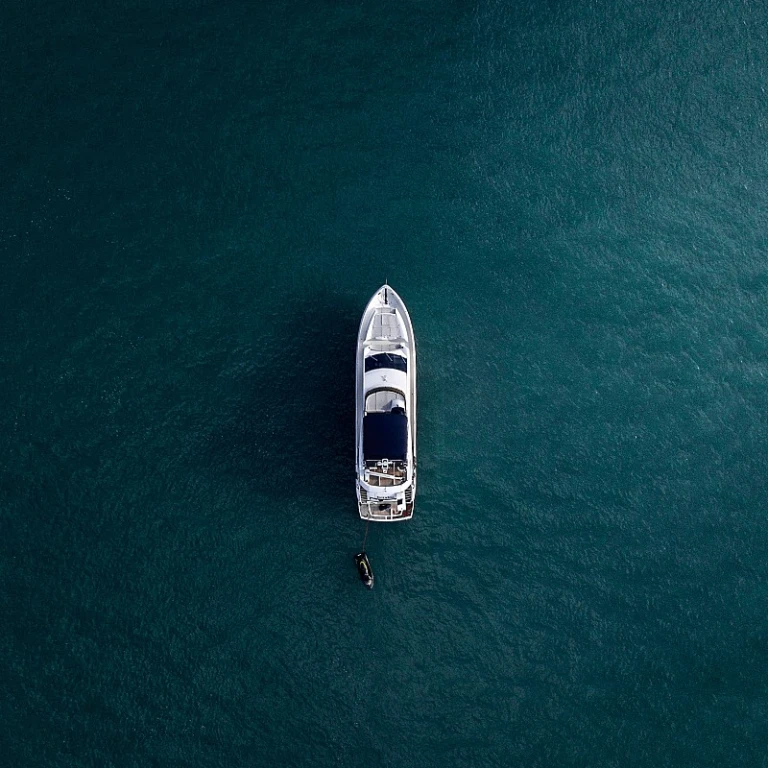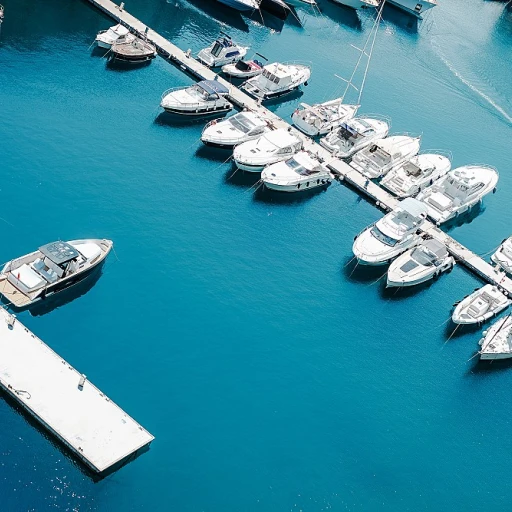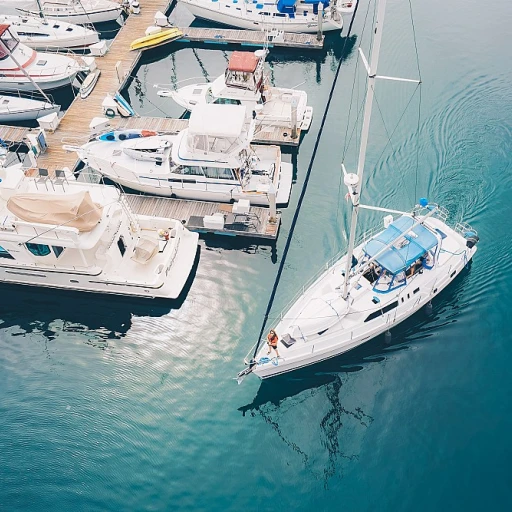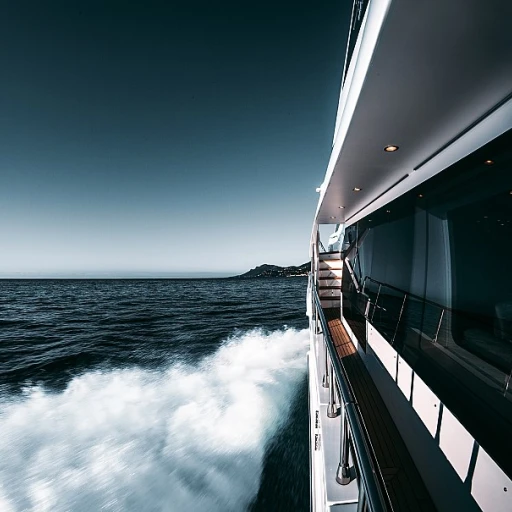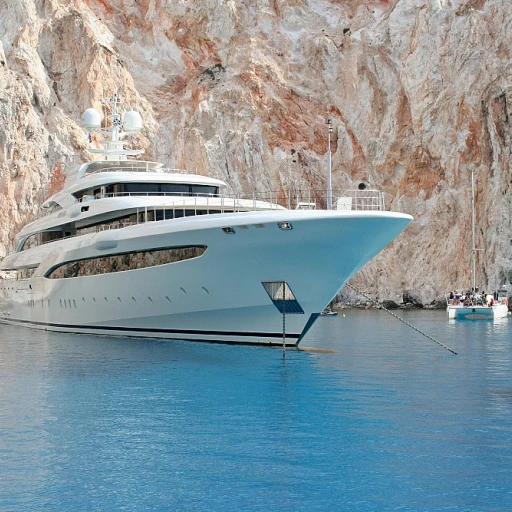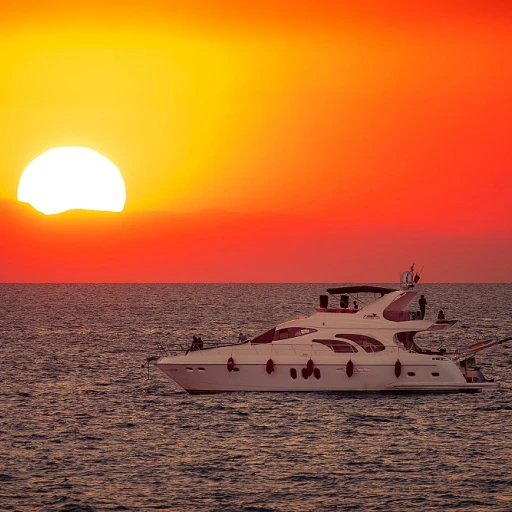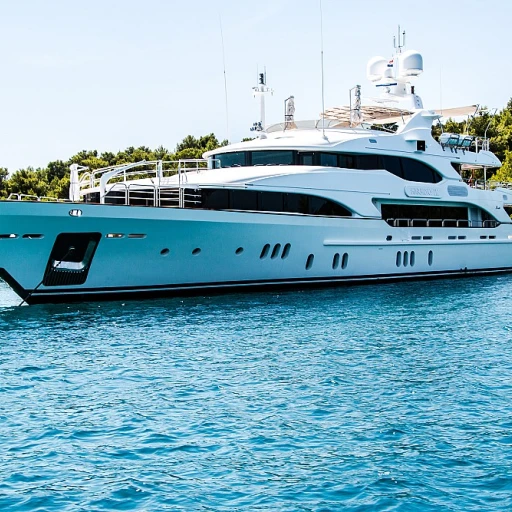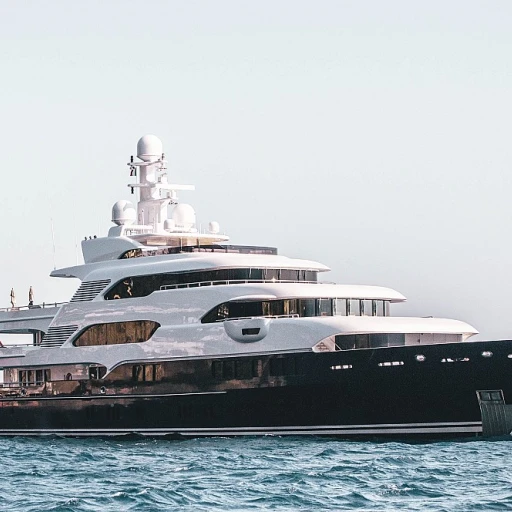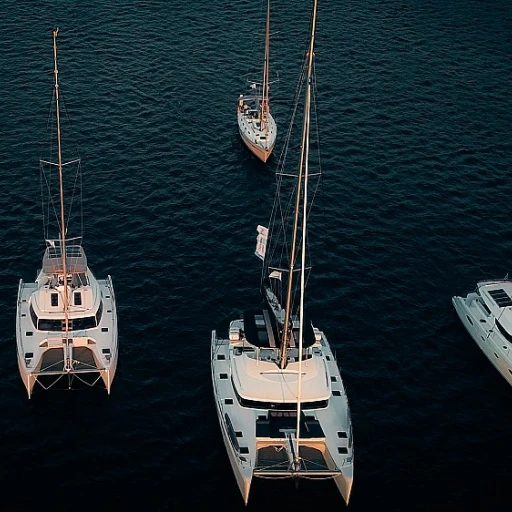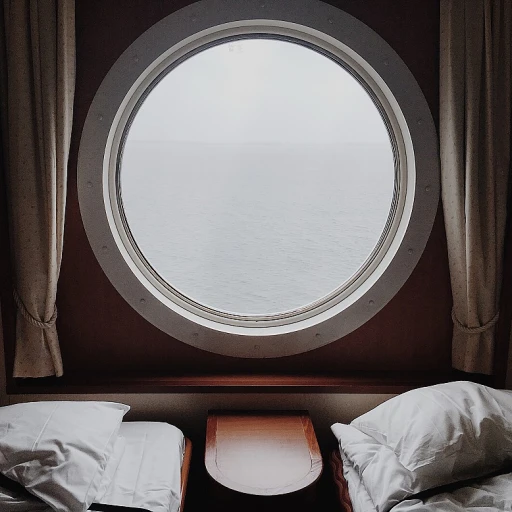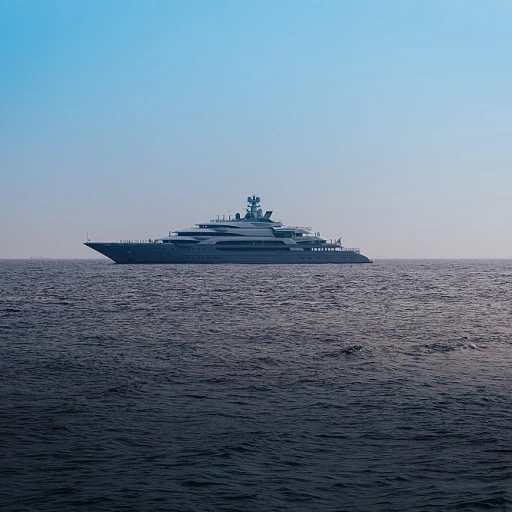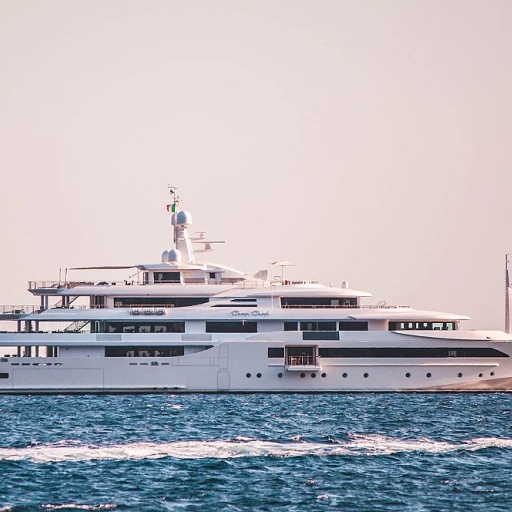
The Emergence of Eco-Friendly Yacht Technology
Charting the Course Toward Sustainability
Yachts have long been symbols of luxury and opulence, yet with the collective gaze of society shifting towards sustainability, the emergence of eco-friendly yacht technology has become a beacon in the marine industry. A staggering statistic from The International Maritime Organization points to the fact that maritime transport emits around 940 million tonnes of CO2 annually and is responsible for about 2.5% of global greenhouse gas emissions. This spotlight on environmental impact has spurred innovation, resulting in the integration of hybrid propulsion systems and advanced, energy-efficient designs into modern yachts. (Go Green in Luxury: Revolutionizing Yacht Life)
Modern Marvels of Marine Engineering
In an ode to the oceans, engineers and yacht designers are pioneering the use of alternative fuels such as biofuels and hydrogen, aiming to reduce the carbon footprint of these majestic vessels. For instance, S/Y Black Pearl, one of the most eco-friendly superyachts, harnesses wind power with its DynaRig sails, offering a glimpse into the future of sailing. Flaunting its hydro and solar power systems, this yacht is not just a vessel; it's a statement that luxury and eco-consciousness can indeed sail in the same direction.
Navigating New Waters with Renewable Energy
The inclusion of solar panels and wind turbines is no longer a niche trend, but a growing expectation among the eco-conscious elite. As evidence of this shift, the market has observed a significant uptick in yacht owners opting for upgrade packages that feature renewable energy systems. These sustainable additions are not only beneficial for the environment but also reduce operational costs significantly over time, presenting a compelling argument for those contemplating green technology investments. By harnessing the power of the elements, sustainable yachts offer an enticing blend of guilt-free indulgence and forward-thinking technology.
Benefits of Investing in Green Technology for Yacht Owners
Maximizing Value with Green Tech Innovations in Yachting
The boating industry is witnessing a paradigm shift with the advent of eco-friendly yacht technology. As a yacht owner, the integration of green technology is not only a conscientious decision for the environment but a strategic investment as well. The latest marine sustainability statistics reveal a growing trend among consumers favoring environmentally responsible brands, which may significantly influence the resale value of yachts that boast eco-friendly features. "Sustainability is rapidly transitioning from a niche to a necessary investment in the yachting industry," notes a leading marine analyst.
Reducing Operational Costs with Eco-Friendly Yachts
Owning a yacht encompasses substantial operational costs, including fuel, maintenance, and dockage fees. But did you know that investing in green technology can markedly decrease these expenditures? For instance, hybrid propulsion systems can slash fuel costs by up to 30%, according to recent industry reports. Moreover, the use of advanced materials and coatings can extend maintenance intervals, thereby reducing the overall cost of yacht ownership. "Eco-friendly yachts are not just about protecting the seas; they are about cost-efficiency over the long haul," states an experienced yacht financial advisor.
Enhancing Yacht Performance with Sustainable Features
Modern green yacht innovations are redefining performance standards. Eco-friendly yachts are now equipped with technologies like advanced hull designs and air lubrication systems that not only reduce environmental impact but also improve speed and stability. "The latest advancements in sustainable yacht technology are setting new benchmarks for performance," shares a renowned yacht designer. The incorporation of these technologies has shown a measurable increase in nautical mileage and agility, thereby enhancing the yachting experience.
Attracting a New Demographic of Eco-Conscious Charter Guests
The growing eco-consciousness among consumers is creating a fresh market segment that prefers to charter yachts with a smaller carbon footprint. This shift in consumer preferences is supported by data indicating an uptick in demand for eco-friendly charter options. Owners of green yachts are, therefore, poised to tap into this lucrative sector. "The allure of sustainable sailing is attracting a new breed of charter guests who are willing to pay a premium for green luxury," reveals a market research analyst specializing in luxury travel trends.
Debating the Practicality: Obstacles and Solutions in Eco Yachting
Assessing the Viability of Eco-Friendly Yachting
While the yachting industry revels in the pioneering technology that makes sustainable sailing possible, yacht owners must confront a sea of challenges. The balance between luxury and eco-responsibility can often seem precarious. A recent report by The Superyacht Group indicated that over 60% of yacht owners are concerned about the impacts of yachting on marine ecosystems, yet retrofitting existing vessels presents significant technical and financial hurdles. Finding experienced suppliers and engineers who can navigate these waters is essential for those seeking to upgrade to green technology.
Navigating Through the Economic Turbulence of Green Retrofits
Investing in sustainable yacht tech often comes with a steep upfront cost. Upgrades like hybrid propulsion systems, solar panels, and advanced wastewater treatment can require substantial capital. However, according to a study by the International Transport Forum, eco-friendly yachts can reduce operating costs by up to 30% in the long run due to increased fuel efficiency and lower maintenance costs. Yacht owners should evaluate the long-term value of these investments, taking into account potential savings and increased market value for eco-conscious charters.
Charting a Path Forward Amidst Regulatory Challenges
Compounding the economic concerns are the stringent regulatory frameworks that govern eco-friendly yacht modifications. Emission standards, for example, are becoming increasingly tough. The International Maritime Organization's (IMO) sulfur cap implemented in 2020 drastically altered the landscape for fuel usage in yachting. Owners must stay abreast of such changes and proactively plan for compliance, often requiring a dedicated team to manage the regulatory labyrinth—as per the International Yacht Bureau, around 75% of yacht owners believe that regulatory compliance is among their top challenges.
Setting Course with Sustainable Innovation
Sustainable innovation in luxury sailing is not merely about overcoming obstacles; it's about redefining the journey. Pioneering yacht owners are collaborating with naval architects to design groundbreaking eco-friendly features. From solar-powered propulsion to hybrid engines, these modern marvels are not only feasible but are setting new standards in the industry. It's a movement that is bolstering the market for green technology and showcasing the successful marriage of opulence and sustainability at sea.
Eco-Yachting: A Balance of Design and Environment
The trend toward eco-friendly yachting requires a symphony of design, innovation, and environmental stewardship. While the distinct aesthetic of yachting is characterized by sleek, luxurious lines, robust statistical evidence now suggests that sustainable design can enhance, rather than detract from, this elegance. Innovative use of lightweight materials and natural resources can preserve both the classic allure of yachts and contribute to the health of the oceans, creating a paradigm wherein yacht owners do not just sail the seas but actively partake in their preservation.
The Future on the Horizon: Next-Gen Innovations in Eco-Friendly Yachting
Innovative Eco-Friendly Technologies Reimagining Yachting
As the luxury yachting industry sails towards a more sustainable future, cutting-edge technologies are emerging that promise to further reduce the carbon footprint of these majestic vessels. A stunning 75% of yacht owners show a growing interest in eco-friendly features, according to a recent survey by The Superyacht Group. This statistic illuminates the urgency and desire for innovation in the space of eco-friendly yachting.
Advancements in Alternative Fuels and Propulsion Systems
One of the most exciting developments is in the realm of alternative fuels. Bio-based fuels and hydrogen are leading the charge, offering a cleaner burning option compared to traditional diesel. The world watched as Energy Observer, the first hydrogen-powered vessel, circumnavigated the globe, signifying the potential of these technologies. Notably, the use of hydrogen fuel cells is projected to increase by 8.5% annually through 2025, demonstrating a rapidly growing market within the yacht industry.
Revolutionizing with Renewable Energy Sources
Incorporating renewable energy sources is also at the forefront of yacht innovation. Solar panels and wind turbines are becoming more efficient and aesthetically pleasing, integrating seamlessly with the yacht design. Statistics from the Global Wind Energy Council show a 53% increase in wind turbine installations on marine vessels over the last five years, underlining their growing popularity among eco-conscious yacht owners.
Automation and AI for Enhanced Energy Efficiency
The integration of automation and artificial intelligence (AI) is honing the precision of energy use on yachts. AI-assisted navigation systems can calculate the most fuel-efficient routes, while automated energy management systems ensure that the vessel's power consumption is as low as possible. By 2024, experts predict that AI in the maritime industry will have burgeoned into a $1.2 billion sector, epitomizing the tech-forward direction in which eco-friendly yachting is headed.
The Rise of Sustainable On-Board Materials and Practices
Eco-friendly yachting also extends to the materials used on board. Recycled composites, bamboo furnishings, and biodegradable products are becoming standard, as the yachting industry becomes acutely aware of its environmental responsibility. According to a report by Transparency Market Research, the demand for green composites is anticipated to surge, driven by a CAGR of 7% between 2019-2027, a trend that savvy yacht owners are encouraged to follow.

